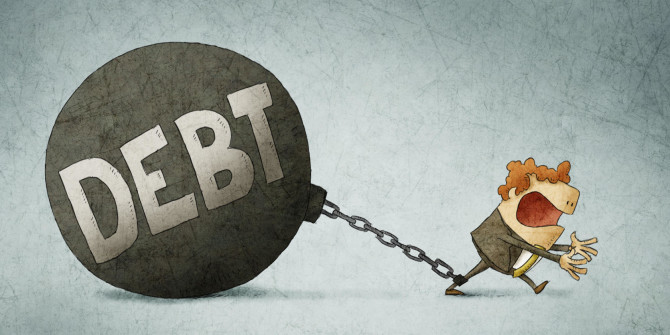Getting out of debt is about more than just coming up with extra money to pay down your outstanding balances. It’s about making sustainable lifestyle changes that help you strengthen your overall financial health. These changes are meant to help you free up extra money in your budget each month you can use to tackle your debts and secure your financial future by developing good habits now.
Here are five lifestyle changes to consider if you’re in debt.
Make Budgeting and Debt Repayment a Priority
About three-fourths of Americans (74 percent) currently follow a budget according to a recent survey. This is promising, as this tool can help consumers across income levels and lifestyles meet their goals. But how big of a priority is budgeting for you right now? Have you found a strategy that really works — one you can commit to each day, week or month without procrastinating?
Prioritize budgeting and debt repayment moving forward. You may find it helpful to download a personal finance app that automates expense tracking, credit monitoring and saving. If you’re currently using a budget template, consider its breakdown by categories and look for opportunities to get even more granular.
The more actively and assertively you budget, the more you’ll get out of the exercise. The same goes for debt repayment, so make sure you know where you stand on each of your balances and have a plan to systematically address them.
Reduce Home- and Auto-Related Expenses
Housing and transportation generally fall under the “needs” category of your budget. But — while shelter and transportation are basic needs — you may be spending more of your paycheck on these essentials than is strictly necessary, which cuts into your debt repayment efforts.
Look for ways to downsize realistically. For instance, if you’re renting a two-bedroom apartment but could get by with a one-bedroom unit, make an economical move and devote your monthly savings to debt repayment.
Similarly, evaluate your transportation setup. There may be ways to save money by selling a vehicle, buying a used car or taking advantage of public transportation more.
The takeaway here is that there are opportunities to save money lurking within wants and needs, so search high and low for cost-effective changes.
Find Ways to Generate Extra Income
There’s likely at least one way you can generate extra income, maybe more.
Start by liquidating some of your own assets. Andrew Housser, debt expert and co-founder of Freedom Debt Relief, notes many of us spend as much as $50 to $100 extra dollars per month on hobbies. Have you accumulated any equipment over the years someone else might want to buy? Put it on the market. You’ll declutter your home and earn extra funds which you can then apply to your debts.
Another way is to literally generate extra income. You may be able to negotiate a raise at your current job or pick up more hours. Or you can take on a completely unrelated side-hustle. Another strategy here is monetizing your hobbies, meaning you sell your skills or products.
Prepare Food and Drinks at Home
Every $5 coffee and $10 lunch you buy adds up. Try to get in the mindset of making small cutbacks on a daily basis. You could save hundreds or even thousands over the course of a year by preparing food and drinks at home. Rather than treating eating and drinking out as the norm, reserve it for special occasions. It will seem like a sacrifice at first, but your attitude will change when you see more dollars staying in your pocket.
Take Advantage of Free and Low-Cost Activities
A simple Google search, “Free activities in [your area]” should turn up plenty of events and landmarks to explore. Instead of dropping $50 on a movie date, consider going to a free concert or class — then stream the film online when it’s available.
These lifestyle changes aren’t always easy at first, but they are worth considering if you’re in debt.
















